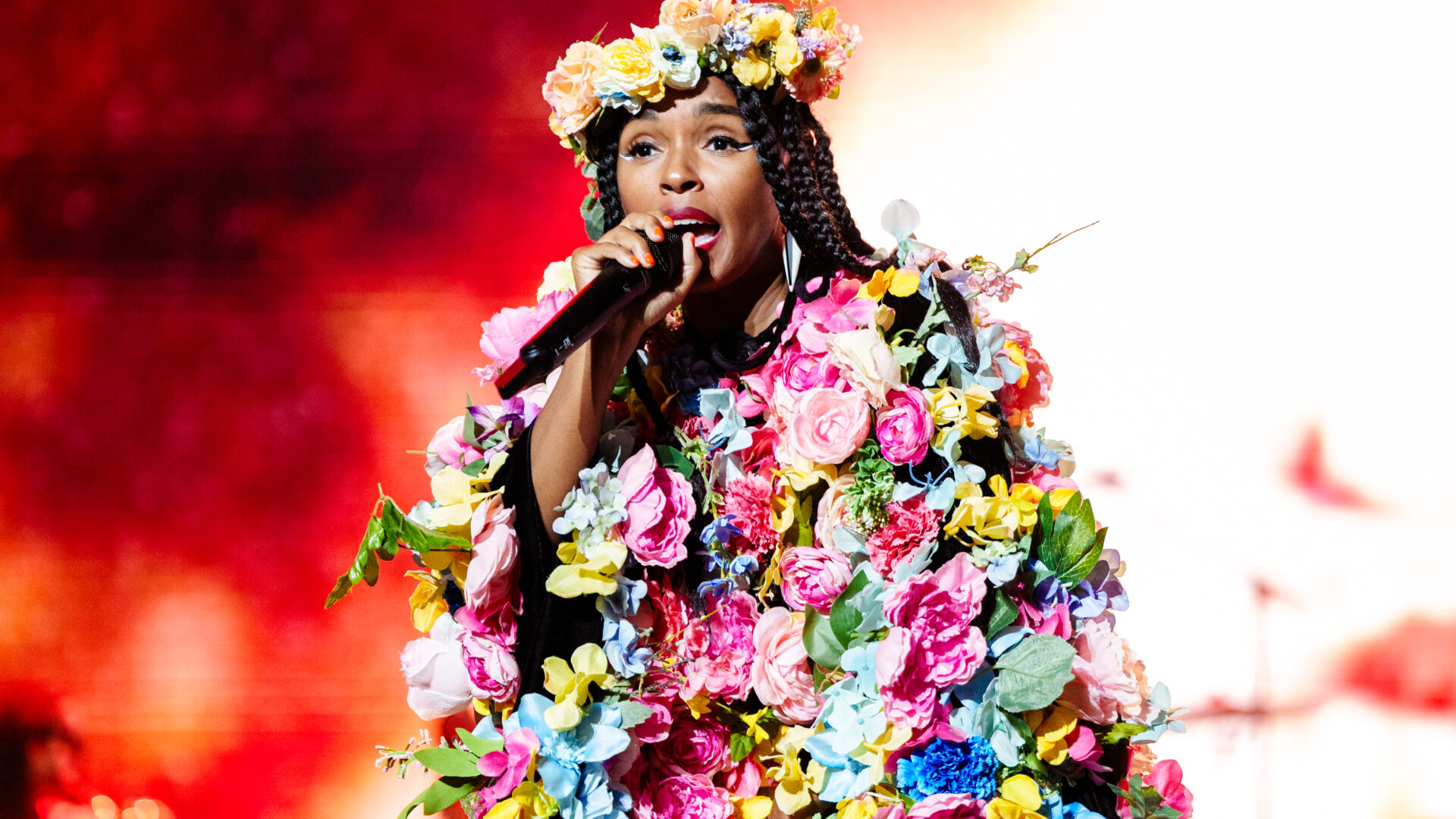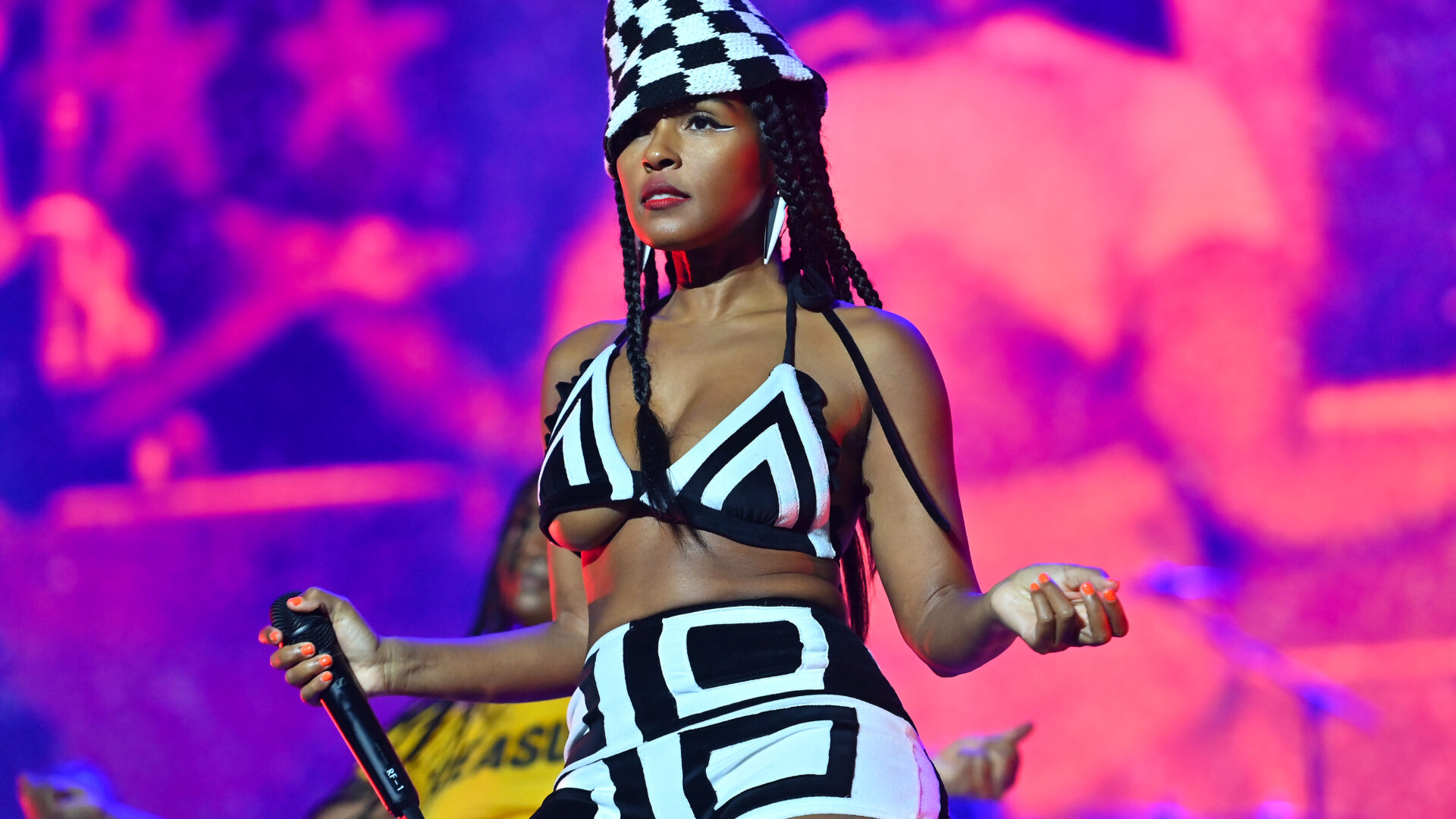
Janelle Monáe uses overtly sensual imagery and language to evoke a sense of pride, courage, and self-reflection for those seeking sexual liberation and opportunities to live in their truth and unleash their power.
From ancient civilizations until now, the bodies and cultures of African descendants of ages, sizes, and skin tones have been hyper-sexualized and fetishized for the enjoyment of others. Akin to cinematic icon Pam Grier, who was at the height of her career during the Blaxploitation Era of the 1970s.
Grier was a breakout Black actress whose characters were sexy, independent, fierce, and often violent. The roles challenged the negative stereotypes Black women often faced on the big screen, including fighting against oppressive forces, standing up for themselves despite the odds, and being involved in same-sex love relationships.
Through her artistry and tenacity, Black women continue to lead in powerful and sensual roles that exude powerful and sexually ambivalent energy, such as Viola Davis’ portrayal of Analise Keating, a passionate, bisexual attorney in the critically acclaimed series, “How to Get Away with Murder.”
Spiritual Healing and Exploration Through Dance
Like the Greeks, Norse, and Romans, the children of Africa, too, had (and still have) their Gods to worship, including deities of sex and lust. Oshun, one of the most revered and influential deities, symbolizes beauty, sweetness, fertility, love, and procreation.
During an interview with the Facebook series The Red Table Talk, Monáe shared, “I’m nonbinary, so I just don’t see myself as a woman, solely. I feel like God is so much bigger than “he” or “she” and if I am from God, I am everything.”
In her 2023 music video, “Lipstick Lover,” Monáe summons the power of her ancestors and stands on her beliefs through healing that only self-awareness and dancing without shame can bring — namely through styles we refer to as wining and twerking.
Twerking derives from West Africa, where a similar style of dance, known as the Mapouka dance, originated. The Mapouka dance is a traditional dance performed by women and is often used to celebrate fertility and womanhood. Twerking was brought to the United States by African slaves, and it became popular in the African American community in the early 20th century. Twerking is a way for African American womxn to express their sexuality and cultural identity.

In recent years, twerking has become popular in mainstream culture and performed by people of all backgrounds. However, twerking still has a solid connection to African culture and spirituality. Some people believe that twerking can be a form of healing and spiritual practice.
There are a few different theories about the spiritual significance of twerking. Some believe twerking can help release emotional blockages and connect with the body, divine feminine energy, and the natural world. For example, the movements may mimic animals such as an elephant or lion(ess). Such physicality creates a range of emotions, from joy to anger and sadness. It’s no secret that dance is a ritual designed to connect with the soul and provide holistic methods to create, heal, and de-stress.
Ultimately, the spiritual significance of twerking is up to the individual. However, there is no doubt that twerking has a connection to African culture, spirituality, and sensuality.
Ushering in the Age of Pleasure
Throughout the “Lipstick Lover” video, Monáe invites the audience to witness as she and her counterparts indulge in various stages of self-exploration, self-appreciation, self-acceptance, and self-pleasure, and culminating in the ultimate reward: the act of self-love. To me, self-love is the unwillingness to sacrifice who you are for the sake of moving peacefully and effortlessly throughout society. Society, after all, is what we make of it. And peace comes from accepting and encouraging yourself and others to exist without regrets.
Homophobia and the Black Community: Addressing Generational Trauma
There is a push for healthy dialogues and change in the black community around homophobia, including conversations about the history of homophobia in the black community, the impact of homophobia on black LGBTQ+ people, and the importance of creating a more inclusive and accepting environment for all black people.
Monáe has made it her mission to address the homophobic and sexist mentality that still plagues the Black community by challenging gender norms, supporting community initiatives, and promoting healthy exchanges through the expression of fashion and art.
Monáe has shared her journey as she explores her sexuality by publicly coming out as pansexual in 2018 to her evolution as a non-binary superstar. “My pronouns are free-ass motherf* and they/them, her/she.”

“I’m nonbinary, so I just don’t see myself as a woman solely. I feel like God is so much bigger than “he” or “she” — and if I am from God, I am everything,” Monáe announced on the Red Table Talk. Monáe’s commitment to living in the “Age of Pleasure,” the title of her latest album, and embracing open sexuality breathes new life into an otherwise stagnant society. In the midst of a subtle and endearingly sensual moment during the “Lipstick Lover” video, Monáe sits gingerly on the floor and in front of an older woman. Both are naked and smoking cigars. The vulnerable yet empowering scene amplifies the importance of representation across all ages, with the older woman seemingly passing comfort, knowledge, and support to Monáe, something we all deserve.
Her candidness and belief in the freedom of expression, whether it’s through education, art, spirituality, or sexuality, is leading more people in discussions about identity and progression. There’s no hiding, second-guessing, dismissive agendas, and no shame — instead, championing utter and unapologetic non-conformity, honest reflection, and intentional connection.
Through her ever-increasing strength, intuitiveness, and fluidity, Monáe has re-opened that space to create a dialogue and experiences we can all benefit from. Imagine a world where individuals could express their sexuality and identity stigma-free. To me, that not only means liberty, it means unity.